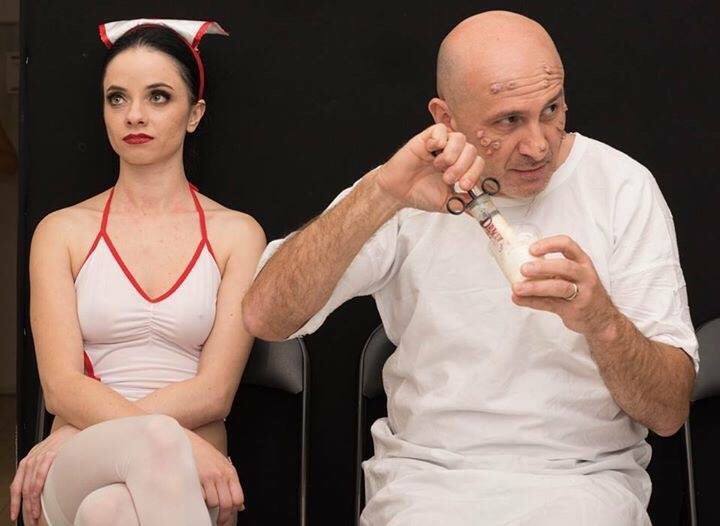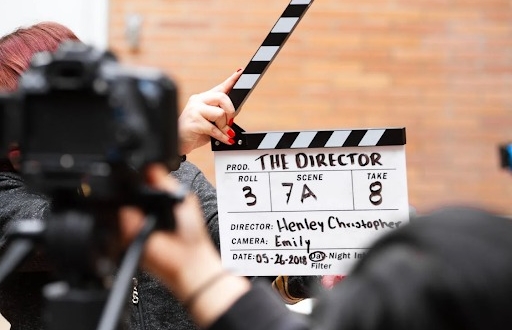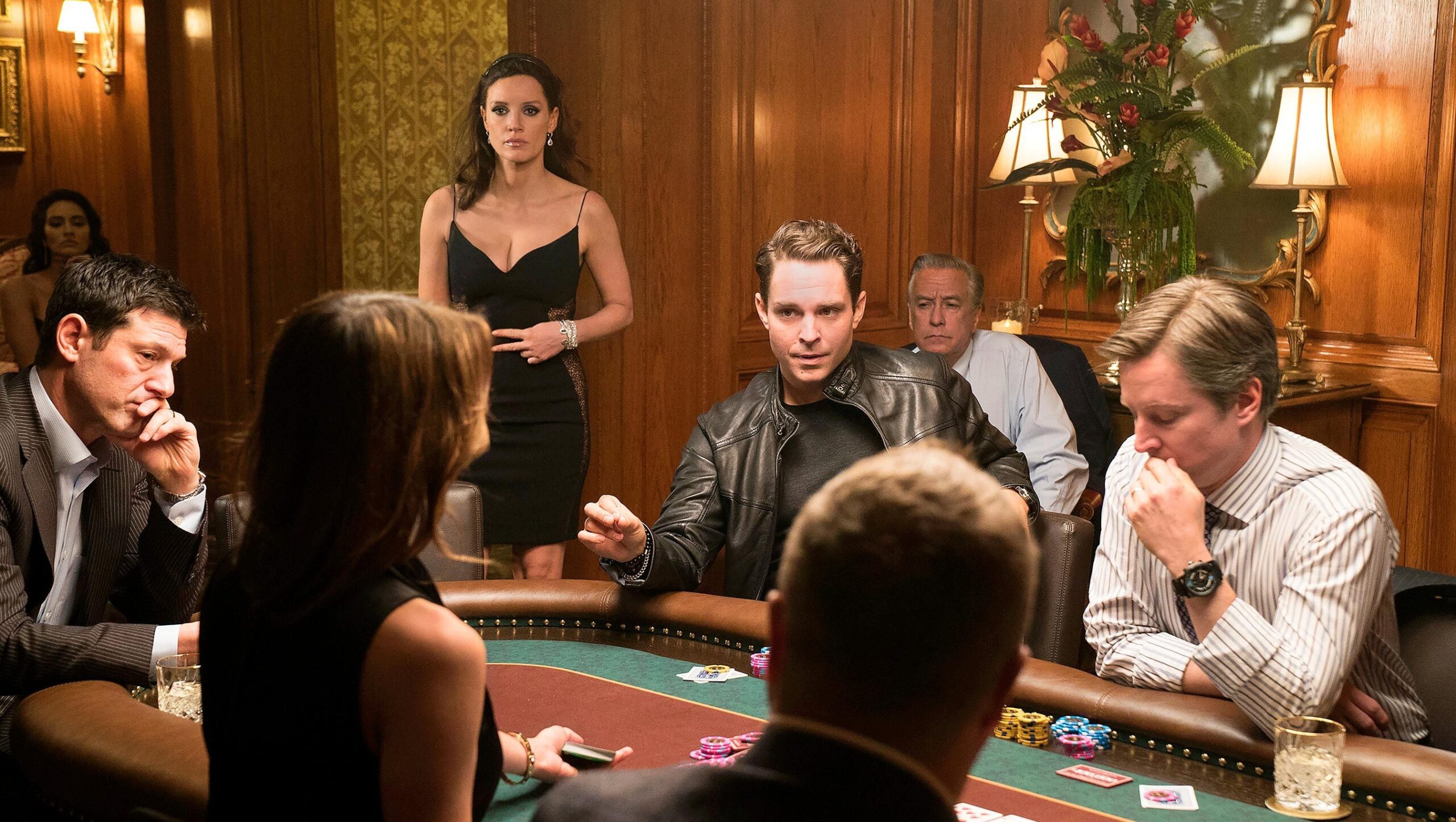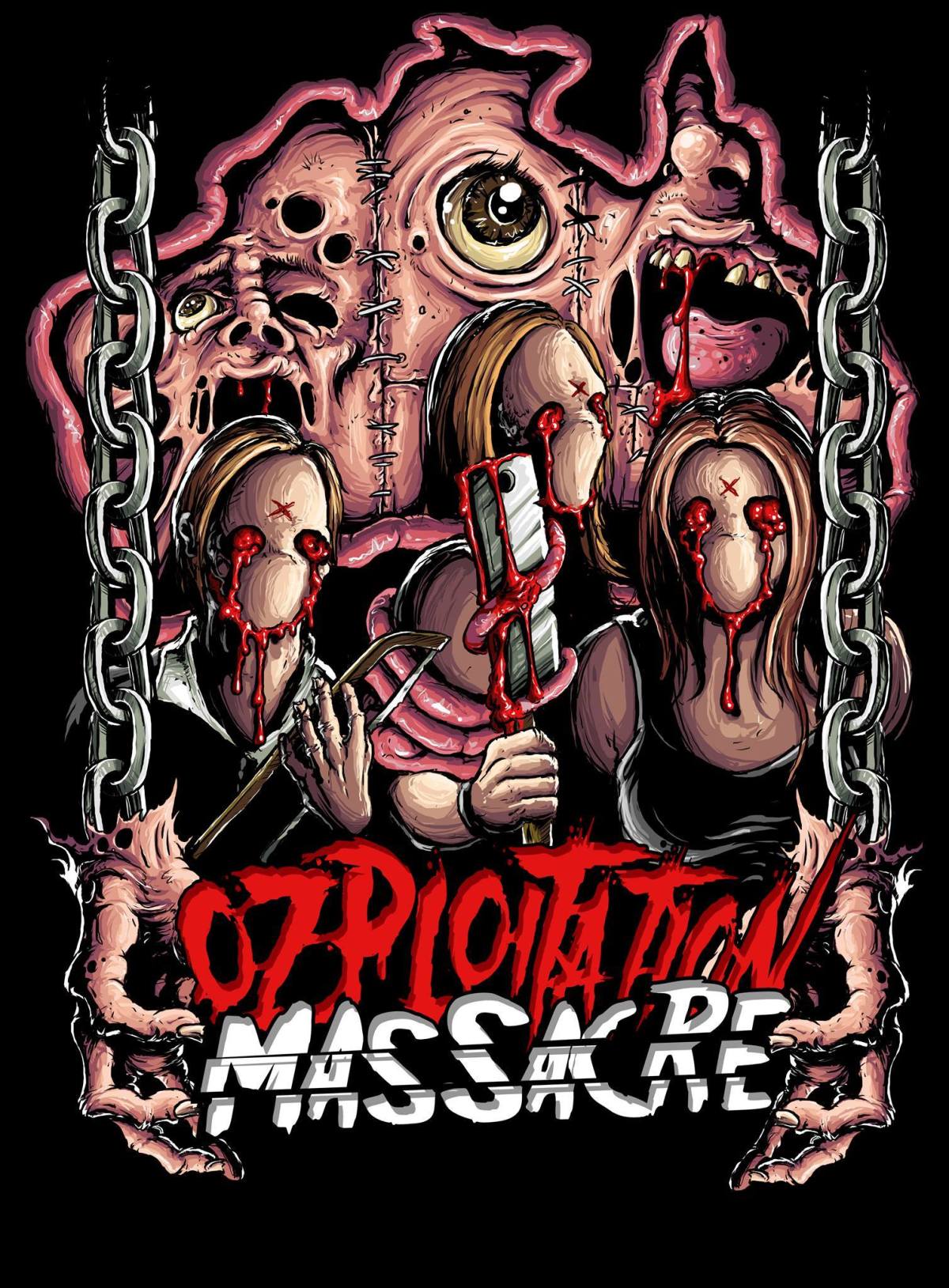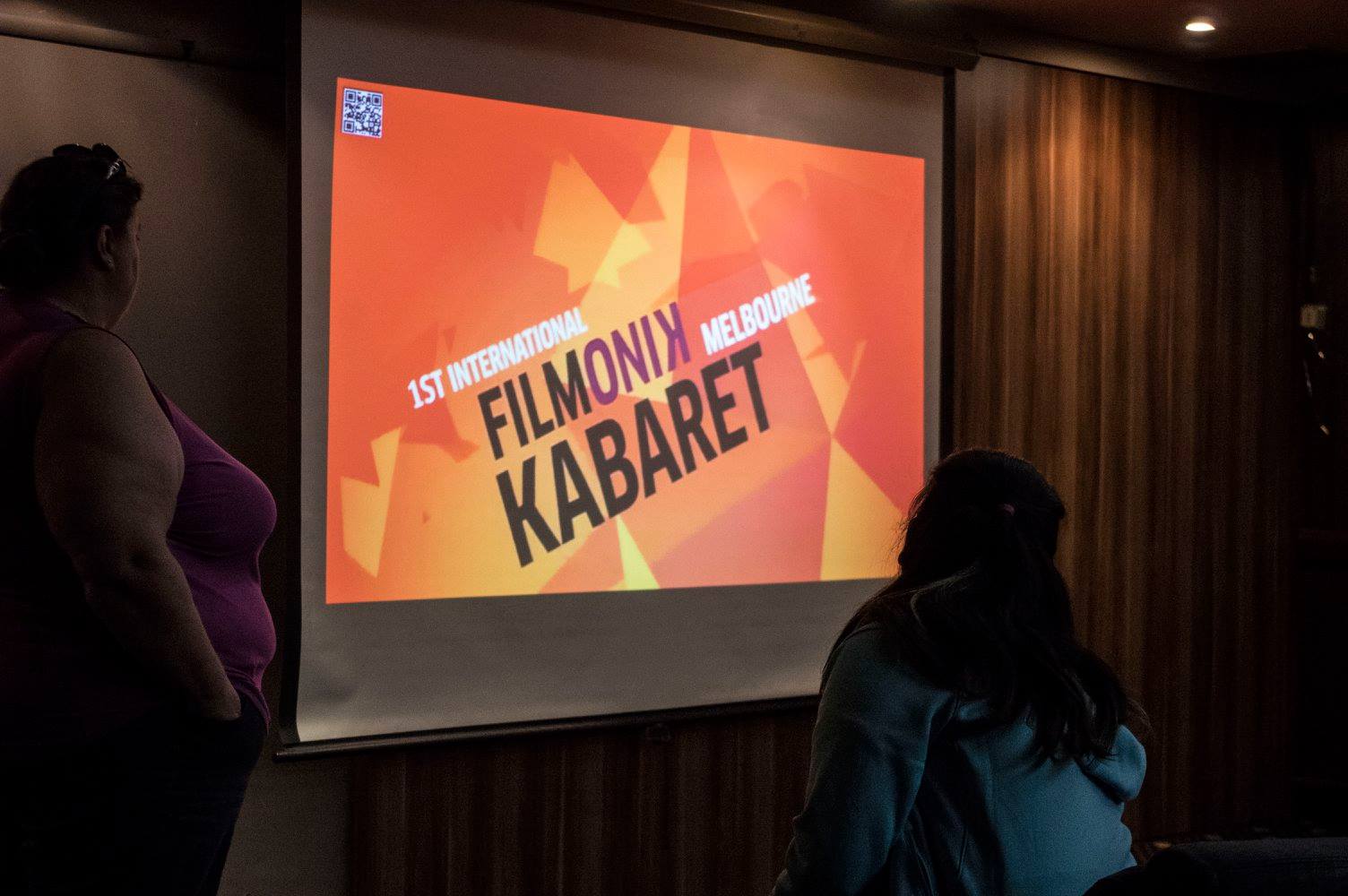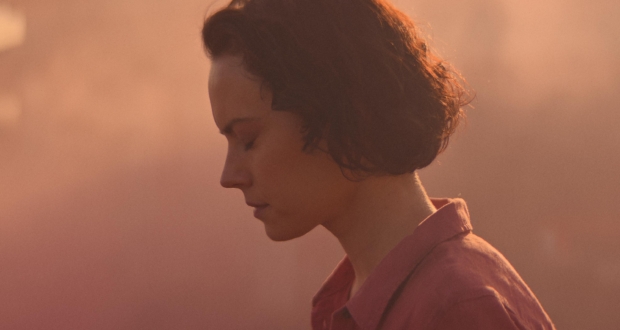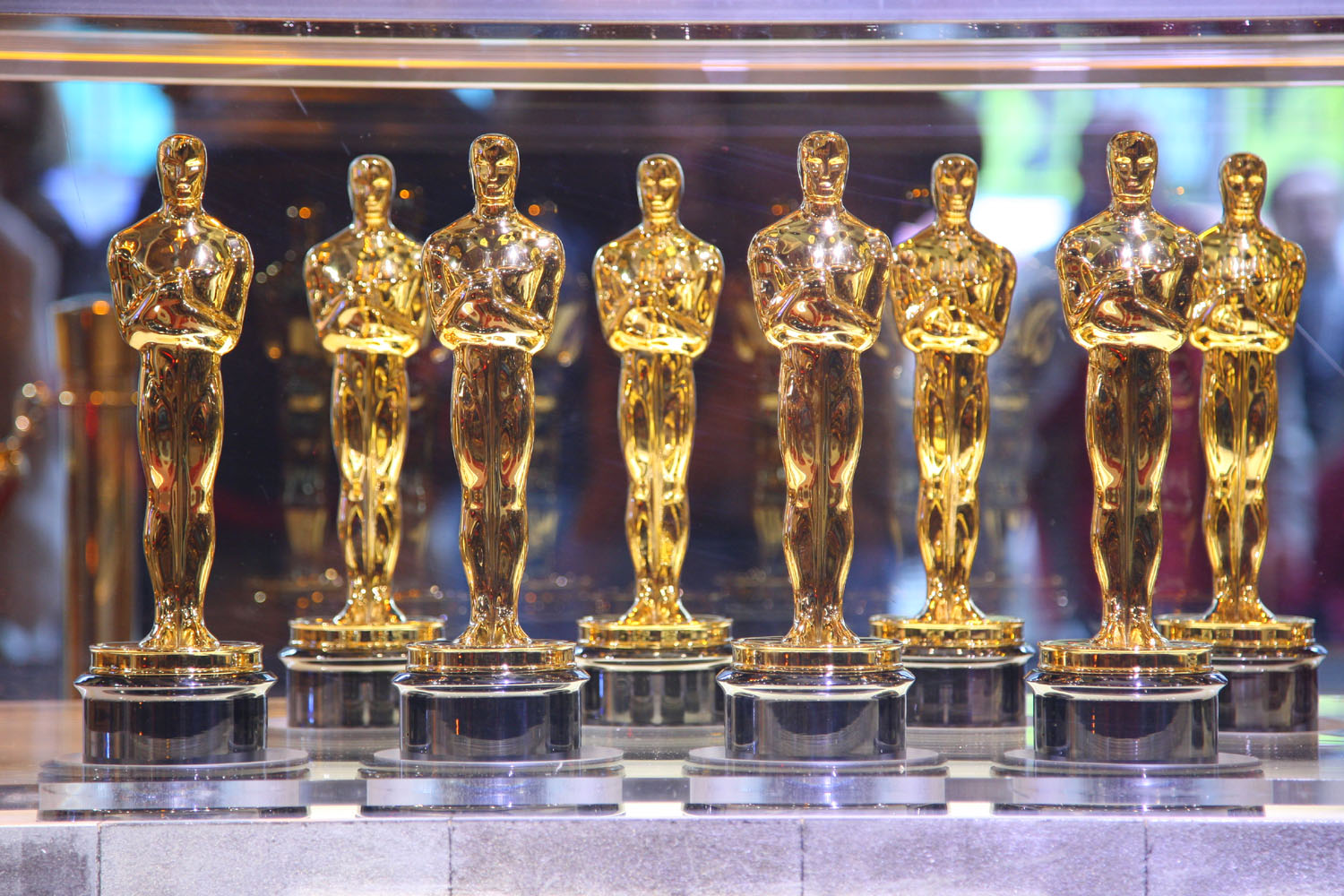David Black chats to four successful women in the indie movie industry about the subject of gender bias.
Have you ever been happily trundling along, lost in a daze and feeling all is well in your own little world when suddenly ….. SPLODGE!!! You’ve stepped in it! A sickly warm stench wafts up, assaults your nostrils and chokes you half to death while a swarm of angry blowflies appear out of the blue and circle around your head!
Well, ok, I haven’t had that quite happen to me on that scale. It’s just the way I visualised a nasty situation that I recently found myself in. It seems that one of the red hot issues in the Australian indie movie industry today is gender bias.
To put that into straight English, instead of the politically correct term of “gender bias” — some women feel that they are treated unfairly and not taken seriously due to being female. They feel that they have lost out on opportunities they would have won otherwise if they were male. It can even go further in that some feel that there is a casting couch, a glass ceiling in organisations and wage disparity. Others feel that the roles that they are offered pander to stereotypes that are degrading to women.
So… how in hell did I manage to step into the stinky hot centre of such a distasteful issue? Well, I had complaints that I haven’t given equal time to female film makers in my interviews, articles and movie reviews. Also, on my recent Victorian Indie Movie Night, only one of the 11 film makers whose films were shown was female. There is no refuting the numbers here, so I thought that to best explore the issue, I should just talk to some women in the industry and let them tell it in their own words.
Tonight, I will be chatting with Jackie Kerin, , Dia Taylor, Jessica Pearce and Raven Christina Corvus.
Jackie’s first IMDB entry has her appearing in Skyways back in 1979, but she started even earlier in 1976. By comparison, Dia is pretty much the newcomer to the industry with 4 or 5 years industry experience. Jessica is a producer and has worked on some large indie productions, such as Ben Hall. Between them, they can give us a good overview of the Aussie scene and how it has changed.
By comparison, Raven is from the USA. She runs Fizzy TV and produces, directs and films White Noise Paranormal, Locked Into Darkness and Small Planet. Raven’s answers should give us an idea if Australia really is just baby USA or if things are different here.
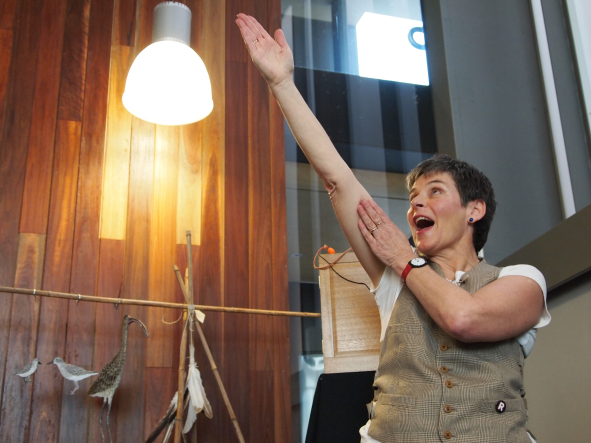
Jackie Kerin
DB – Hi everyone. I appreciate you all being willing to talk about this subject. Can you each tell me a bit about your background?
Jackie – After growing up in Melbourne, I went straight from school to NIDA. It was 1973 and I graduated in 1975. I was young to be accepted. The focus at the Institute was theatre with a little radio and television training thrown in. In three years, we studied no Australian plays. I was aware that at least one Australian play had been written since ‘Summer of the Seventeenth Doll’ – ‘Don’s Party’. I didn’t imagine working in film, as there didn’t seem to be an Australian film industry.
Then in 1975,‘Picnic at Hanging Rock’ was made. Suddenly acting in films seemed like a possibility. I Worked for 7 years in theatre, and television and short films and then in 1982 I played the lead in a horror feature, ‘Next of Kin’ directed by Tony Williams.
Around this time, I was feeling hungry for more education. The NIDA diploma was a practical course, my life had been sheltered and I was tired of my naivety. I traveled around Europe for a year, and on returning, lived in Central Australia on a remote community. I moved to Adelaide and studied for a Bachelor of Education and briefly experimented with teaching but soon drifted back into TV, making training films (John Cleese had turned corporate training films into a comedic art form), children’s shows and a mini series – ‘River Kings’. I moved to Fremantle and worked in theatre and eventually returned to Melbourne. I was away for 20 years.
For a while I worked on ‘Blue Heelers’ (when required) as the principal of Mt Thomas and had a guest spot on ‘Neighbours’ and ‘Dirt Game’. But these days I do the occasional ad and my focus is on storytelling in its traditional form and writing for children. I’m the current president of Storytelling Australia Victoria.
Dia – I’m a freelance Filmmaker and Videographer based in Melbourne. I’ve been making films for the past 10 or so years but have only started in the industry in the last four. To date I have Directed a feature film and 14 shorts and videos.
Jessica – I came from a Sales background. Originally from Brisbane, I moved to Melbourne five years ago and loved it. Still in Sales at the time, I had lost my passion for it and was looking for something different. I began to explore the idea of moving into the arts. I had never really thought of myself as a creative person even though I spent my child hood doing plays and in a house filled with music. After only one month of exploring options I found myself working as a Production Manager on music videos and short films. The phrase that I have used before, which can sound cliche but is accurate, I dipped my toe in the water and the river took me.
I have since gone on to work as a Producer with an amazing group of incredibly talented people and launched a production company Running Panda Films with my first feature film The Legend of Ben Hall, web-series Waiting on Sound as well as six short films which have gained recognition internationally at a range of festivals. We have also launched in to the commercial space with our Running Panda Productions team. It is by far one of the most terrifying, exciting and rewarding things I have ever done.
Raven – I started filming and directing a reality show for my paranormal team White Noise. Then a few years later me and two friends started Fizzy TV to help people like us in the independant film industry get more exposure. Fizzy is now a Video On Demand site that is also on Roku, Amazon Fire and Google Play. I have been also filming and directing for Small Planet, Locked Into Darkness and a new project that will be submitted to a major netwok in the U.S. For now they all can be seen on Fizzy TV.
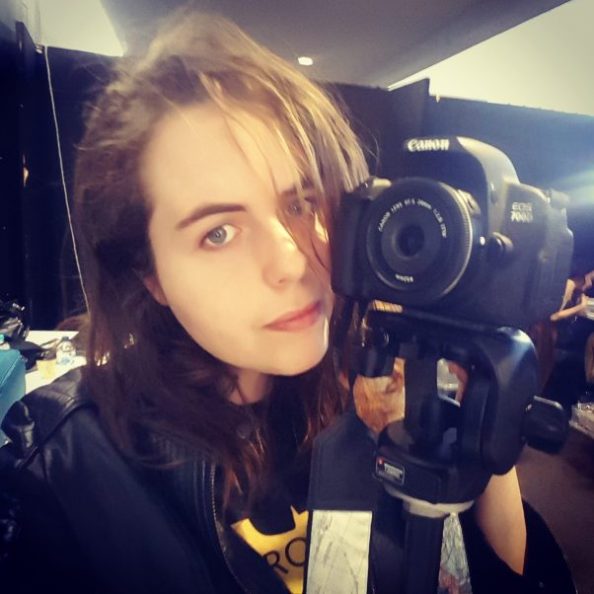
Dia Taylor
DB – have you experienced gender bias in the film industry, and if so, how did you deal with it
Jackie – – I entered the industry shortly after the bar was lifted on married women working full time in the public service. Equality was a subject of conversation and debate. There was a shift in thought on what women could and couldn’t do. After graduation, I moved back to Melbourne and I worked a lot in TV. My memory is that women were thin on the ground. You’d find women working as make-up artists, wardrobe and on continuity. Men wrote, directed, produced and camera, sound, lighting etc. were all operated by men.
The roIes I was given and the narratives were revealing of the male imagination: I was asked to ride a stallion, bare back and topless, be stripped naked and tossed into a pool and I was rescued by police minutes before my jealous boyfriend tried to throw me over a balcony. I was rejected from a job because my breasts were too small I was dressed in jeans so tight I had to lie down to pull up the zip, and when I asked if I could wear something more comfortable, the director reminded me, ‘You are paid to wear what I tell you to wear’. And then there was the director who assured me that if he gave me a lift to the location he wouldn’t fuck me.
I was young and went with the flow. It had not yet occurred to me that things could be different and people, no matter what their gender, had a place in the story making industry, in front of and behind the camera. When I saw ‘Not Quite Hollywood: The Wild, Untold Story of Ozploitation!’ and watched the actresses talking light-heartedly about these films, I wondered for a moment, why I hadn’t been able to be so enthusiastic.
In Fair Game, the woman may get her revenge but I found it very hard to watch this all the same. In Next of Kin , I too, defeat my stalker, I blew off his head. Still, sometimes when I’m watching film and TV, I mutter to myself ‘PBA’ (‘Poor Bloody Actress) when I see them being raped and murdered for the forensic teams to dig up and dissect. I remember walking on a kid’s show in the 70s and talking to a Chinese Australian journalist who was cast to play a role. Musing about the work on offer, she remarked dryly that I was still in front of the game, anyone of Asian appearance had little chance of being cast. In fact anyone that wasn’t white was maginalised. So how did I deal with it? I distanced myself, went away and did some growing up.
Dia – I have to admit I have experienced both sides actually. I was once hired on a film simply for the fact that I was female because the director and Producer were male, they wanted a female AD to balance things. I did once lose out on a producing job because they wanted a male producer – no explanation why. The way I see it is if someone hires or fires you simply because of your gender and not because of your skill level or experience then they’re really not someone you want to work with again.
Saying that though, I was once hired on a film with a rather raunchy scene with an actress. She requested an all female crew to make her feel more comfortable which I do understand, so there are of course some exceptions to the rule.
One thing that I have noticed though, more so with actors is a sort of gender bias or stereotyping of actresses. There are so many films out there with weak female characters who honestly could be replaced by a sexy lamp.
And so many films out there fail to even pass the bechdel test.
Not only this, But I have been witness to actresses being over sexualised on set. We have so many amazingly talented actresses in this city and in the world that can do so much more than just play the girlfriend or love interest.
I see films that have stunning female love interests next to average joe leading men.
Jessica – As a Producer, I have both experienced and witnessed Gender Bias in the industry. There have been some instances early on where I was told ‘ you are a young girl, you don’t have what it takes’ etc. At the time, they were upsetting and made me incredibly angry. I since have realised something that has made the management of these interactions a lot easier. I wish to be treated as a person like anybody else. I choose to not make these interactions about my sex or my gender. Even if someone seems to make a direct attack at my ability to redo my role due to my gender, I do not carry this.
Once I worked with a male production member who I was conflicting with. He was argumentative and dismissive from which I immediately assumed that it was due to my being a woman and his superior. After many weeks of working together, I stopped one day and gave him positive feedback for what he had done well. The facade crumbled and he slumped and said thank you. He explained that the low budget shoot had been incredibly grueling and he was feeling way over his head with the schedule. In this moment, I realised I had been interpreting his remarks and attitude as an offence to me as a woman but the reality was he was just struggling in his own world and as his boss he was feeling a lot of pressure within the role. This still did not excuse his behaviour but allowed me a light-bulb moment to how I can choose how I receive what people throw at me in the industry.
With all of that said – some people are just unhappy, male and female, and there is nothing you can do to change their world. The best thing you can do is not let them change your world perspective.
Raven – I have experienced the gender bias in the film industry more than I would like to admit. When I tell anyone, be it in person or online, you get pretty much ignored. I have noticed in forums when you mention you direct or film it seems like they always gravitate the questions to the men.
I even have to remind my friends and family that I direct and film shows.
I went to film locations and have been totally looked over and they will start asking the men on the crew questions and then they will have to tell them that I am the one in charge. You get the “sorry I just assumed” I don’t get mad, all you can do is laugh, and let your work speak for itself.
What is even funnier is when you tell someone you are working on a horror series that you are going to write and film and they just look at your dumbfounded. It is even more rare to have a woman in the horror genre filming and directing. We are just thought of making “chick flicks”
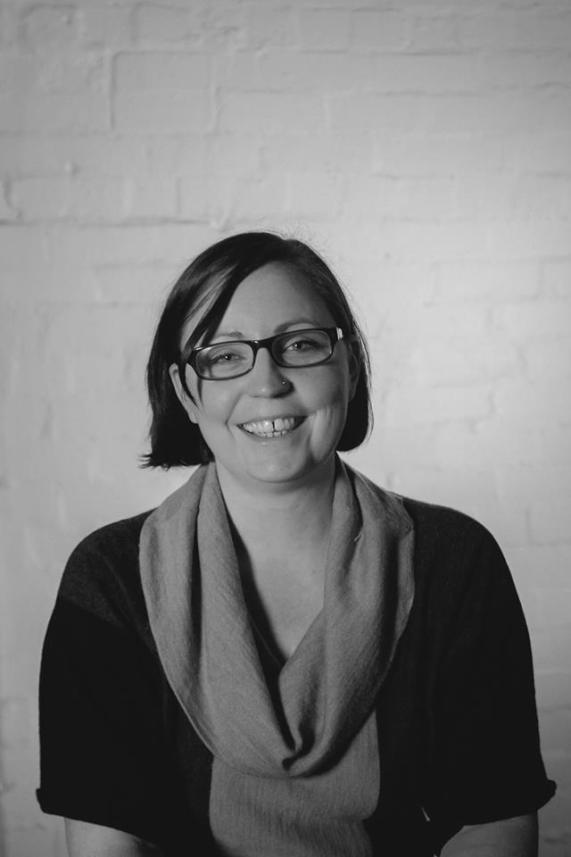
Jessica Pearce
DB – how has it affected the way you do things today?
Jackie – It affects what I choose to watch which means there is still a lot I avoid. In 1992 my daughter was born and as she grew, I started to really notice – like it was no longer a peripheral awareness it was now really in in my face – the lack of representation of women, their stories and stories of all genders, sexualities and cultures! We moved into the western suburbs of Melbourne and the people around us were from all over the world.
Nothing in film and television resembled Footscray or the lives of the people travelling the Werribee line! When we discovered ‘Buffy the Vampire Slayer’, I remember my daughter was hooked. Here at last was a hint of something different. And in her later teenage years we stumbled across stories with Queer themes and characters that explored women and sexuality in a deep way, like ‘The Secret Diaries of Miss Anne Lister’. And later NITV came along and now there is so much more to choose from on TV and in the cinema.
I attended a workshop some time ago, delivered by a young person who explained what it was like not to fit the gender binary we impose and strengthen with our storytelling and myth making. They described so articulately how it feels to be invisible in story. Like having no reflection, no artistic explorations or commentaries on how to be and live. This made a huge impact on me as I realised, it was not only women and people of colour and different sexualities but also people of non-binary gender who were missing from the narratives. It’s exciting to see changes, small though they may be happening in our story telling. I guess the 70s and 80s primed my brain to think about these things.
Dia – It has and it hasn’t. I like working with a mix of people. I have a tight little circle of people I like to work with often who are both male and female. I don’t think either gender is better suited to a particular role. It’s the person and not the gender that you should look for. Though I have noticed a lot more male sound recordists and female make up artists, I think this as well just comes down to personal preference with what roles people want to go into though.
Raven – It doesn’t affect how I do things. It should never change how you conduct yourself or treat others in the industry. We have to remember for so long woman were though of being in front of the camera and not behind it. It wasn’t that long ago woman in America didn’t even have the right to vote.
Jessica – I find my role to be an important one for setting the tone of the interpersonal relationships and environment of a production. There have been other examples of what I would deem gender bias but I have often found that people respect what I am doing and the role I bring to the table. I make it clear from the outset how I like to work and the expectations I have of those I work with, not as a woman, as a film maker and professional. I find that this sets a tone and clear bench mark for what is expected and how the production will operate. It is not always easy but I have found that this helps me determine very quickly how well we will work together and if it is the right fit as well as weeding out anybody who is holding any gender bias.
Raven – It doesn’t affect how I do things. It should never change how you conduct yourself or treat others in the industry. We have to remember for so long woman were though of being in front of the camera and not behind it. It wasn’t that long ago woman in America didn’t even have the right to vote.
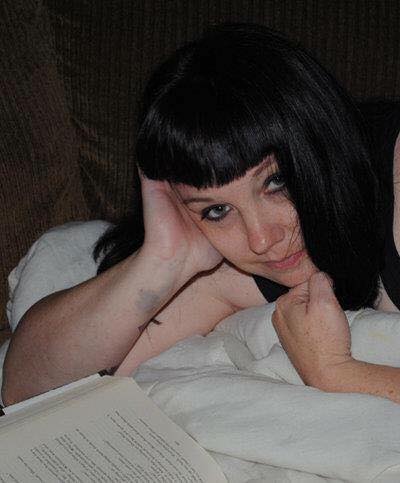
Raven Christina Corvus
DB – have you benefited from any of the women’s organisations or the media outlets created purely for women?
Jackie – – Not that I can remember, or perhaps not directly. Now on the rare occasion when I walk onto a film or TV set (I still make ads), I see women taking on all kinds of roles. Men still dominate behind the camera but I’ve worked with female camera directors, sound, directors, writers etc. and they are no doubt finding places in the industry because of the work that has been done for them by schools, individuals, organisations and women etc. The sets I walk onto these days are more respectful of all crew and cast, children are better protected (I was involved in some TV when I was about 13 and looking older than my age. There was no supervision of young people and the only advice I was given was to steer clear of ‘men with octopus arms’!) Respect on set is a nice thing, after all every job is needed to create each piece of the puzzle that is slowly gathered, take by take. Recently I was asked if my shoes were confortable. Seems like a small thing but it made me pause for a moment and I remembered those tight jeans. The last time I saw anyone humiliated and bullied (and it was a woman) on a set was 1991.
Dia – Not as of yet but that’s simply for the fact that I haven’t personally looked into them. I think as well there should be male versions of such things too so as we can have true equality.
Jessica – I have been incredibly grateful and supported by both the female film making community and the women’s organisations. It is definitely worth noting though that the same obstacles apply in terms of funding and applications due to credits and connections. Personally, the idea that I would receive funding or an upper hand because I am a woman actually makes me very uncomfortable. I would like my project or team to be rewarded because of their hard work and merit of the project, not because of gender. HOWEVER, I understand how important the initiatives and organisations are in creating a social change on the perspective of female led stories and content. I hope that one day it no longer matters. I am completely aware how idealistic that sounds.
Raven – No but there are good programs out there. It helps even the field that is saturated with one gender. It is nothing to be ashamed of or thought of as biased. These programs help encourage woman to get into the field. It can be hard enough in the indy scene.
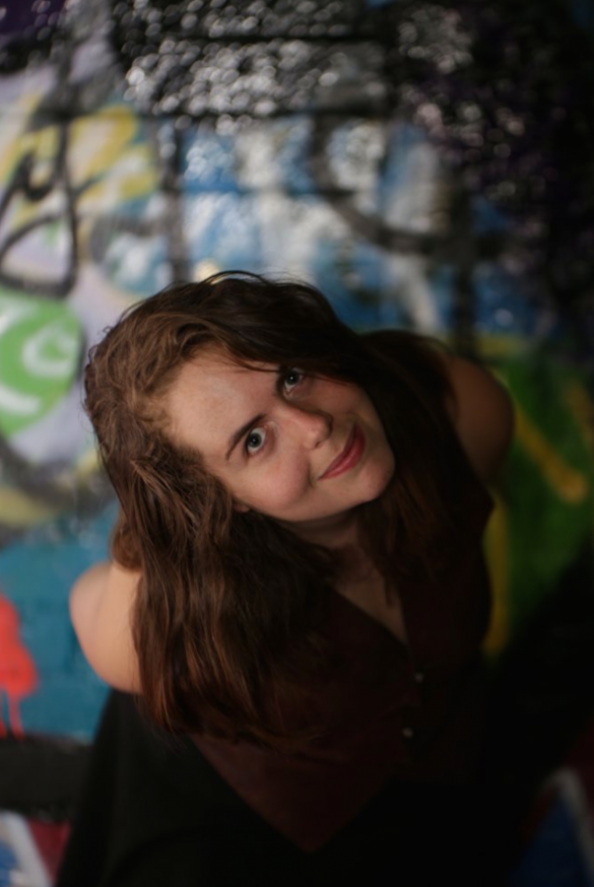
Dia Taylor
DB – Do you have any advice for women entering into the film industry?
Jackie – I feel, as I am distanced from the industry these days, there is not much I can say. Acting requires resilience and most of us have to work on that every day. Stick with it; we need to hear stories made by and about all kinds of humans and all genders. Call out sexism and bullying when it happens – don’t be afraid. I was and so regret being silent. Young people, I believe are vulnerable and the work can muck with the head; a mentor is a good thing. Think about your boundaries. You don’t have to accept the job if what you will be asked to do is uncomfortable for you or gratuitous. I’m sounding like a Nana. Making film and TV is fun. Where else would you get to go to work alongside, artists, writers, electricians, sound experts, camera experts, designers, carpenters, business people, pilots, inventors, animal wranglers, historians, old people, young people … and they all on ACTION do their thing! Magic
Dia – Yes I do actually. We are a rare breed; don’t let the world tell you that you can’t do what you love. There are some absolutely amazing female filmmakers out there… Sofia Coppola, Julie Taymor, Catherine Bigalow, Catherine Hardwicke, and Floria Sigismondi are just some examples to look up to.
Less than 10% of directors in Hollywood are female and even less are producers and DOPs. Be the change. Don’t let the industry sexualise you or change you in any way
Jessica – A common mistake, and one I have made is trying to define myself to others and personally based on my gender. The more you define yourself as what type of person, film maker and artist you want to be regardless of gender it will help frame your relationships in the industry. Make content. Keep making stories that you find interesting. Hire that female crew.
Raven – Just keep doing what you’re doing and don’t let yourself grow a chip on your shoulder. Woman should be seen no differently than men in a perfect world, which it is not. It should be all about the finished product and not about your gender.
DB – Thanks everyone for chatting to me today.
Any links you have can go here:
Jackie
Fair Game https://www.youtube.com/watch?v=SQuHBbUz6Cc
Next of Kin trailor: https://www.youtube.com/watch?v=pFcdd3VCIaM
Storytelling Australia Victoria: http://www.storytellingvic.org.au/
http://www.jackiekerin.com.au/
Dia – youtube.com/diataylorofficial/
http://www.imdb.com/name/nm6595521/?ref_=tt_ov_dr
http://diartaylor.wixsite.com/portfolio
Jessica – http://runningpanda.com.au
Raven – www.fizzy.tv
www.whitenoiseparanormal.com
David – Twitter @darkvisible Instagram – @davidblack1964
